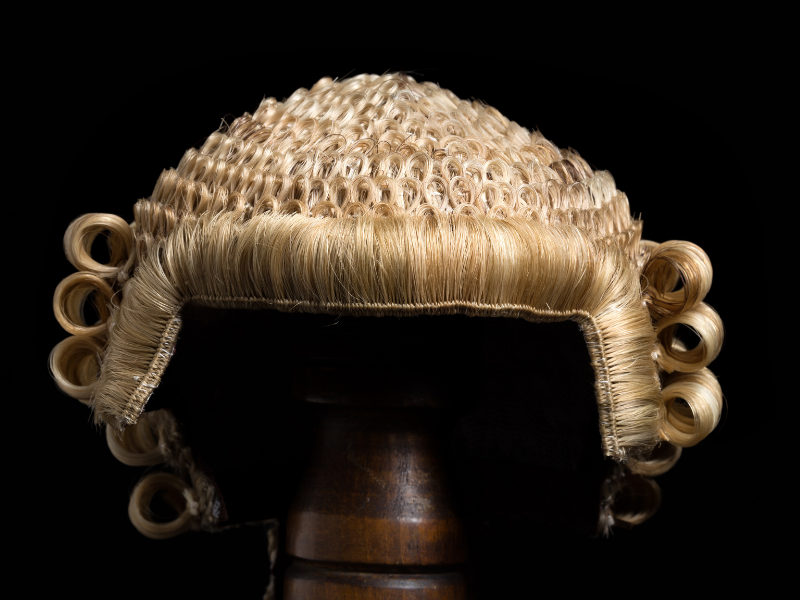What Can I Do If My Lawyer Is Not Delivering Satisfactorily?
by Ivan Aaron Francis ~ 27 May 2021
Disclaimer: The aim of this article is to educate the everyday person about the options available to them in the event they are unsatisfied with the service provided by their lawyer. This webinar will not discuss how to disqualify your opponent’s counsel/solicitor nor is it geared towards encouraging you to take action against your lawyer for disagreements or minor issues. This will be primarily looked at in the context of dispute resolution.
Introduction
Lawyers owe a general duty of fairness to the Court, their clients, opposing counsels and to society at large. These ample duties are what allows people to hold lawyers to higher standards of ethics when carrying out their jobs. The specific duties and rules can be found in the Legal Profession (Practice & Etiquette) Rules 1978 and they include:-
- No advocate and solicitor to accept brief if difficult to maintain professional independence.
- Advocate and solicitor to uphold interest of client, justice and dignity of profession.
- Advocate and solicitor to disclose all circumstances to client.
- Client’s feeling not to influence conduct of counsel.
- Advocate and solicitor not to abuse confidence reposed in him by client.
just to name a few.
While it is the client that engages the lawyer, lawyers are ultimately officers of the Court and are not their client’s mouthpiece (Rondel v Worsley). So lawyers have double loyalty – to their clients and to the law. Therefore, they must act in the best interest of their clients, but never at the expense of the law.
Taking legal action against your lawyer
There are two areas of law which one may sue their lawyer under;
- under contract; and/or
- for professional negligence under tort.
Typically, a contract would be the retainer signed by both client and lawyer and typically sets out the scope of work and services agreed upon to be provided by the lawyer for the client, along with details as to the remuneration to be made. Hence if your lawyer fails to perform certain necessary acts to fulfil the scope of work contracted for, you may have a cause of action for breach of contract. The reliefs sought would depend on the circumstances of the case and the type of the breach made
Under the law of tort, negligence is the breach of a legal duty to take care which results in damage, undesired by the Defendant to the Plaintiff (Winfield & Jolowicz). The necessary elements in proving negligence are as follows:-
- Duty of care
- Breach of Duty
- Causation
- Damage
In Nyo Nyo Aye v Kevin Sathiaseelan A/L Ramakrishnan & Anor [2020] 4 MLJ 380, the Defendants were engaged by the Plaintiff to initiate a civil suit. In the civil suit, security for costs was ordered against the Plaintiff, whereby RM80K was suppose to be paid into Court within 14 days, failing which the Plaintiff’s suit would be struck off. The security for costs was appealed against and a stay was procured. In the end, the Plaintiff paid the security for costs into Court late and the suit was struck off. The Plaintiff’s complaint was that the Defendants did not advise that failure to comply with such order in time would result in the suit being struck off.
The Court of Appeal found that nothing showed that the Defendants had advised and informed the Plaintiff of the urgency and the consequences in failing to comply with the order. The Court stated “being professionals, it would be reasonable to expect a legal firm to have at least issued correspondences in writing to the Plaintiff on a matter of such great importance".
In Shearn Delamore v Co v Sadacharamani Govindasamy [2017] 1 MLJ 486, the Appellants were found liable in negligence for an opinion rendered relating to the intellectual property rights of the Respondent. One of the issues before the Court was standard of care for professional negligence. The Court of Appeal held that the trial judge misapplied the wrong standard of care and drew a difference between negligence and ‘professional negligence’.
In general negligence cases, the standard of care is an objective test – the ‘reasonable man test’, but this does not apply to professional negligence. The Court clarified that in professional negligence cases, the standard is that of a reasonable practitioner in that profession and not merely of a reasonable man. Hence, Plaintiffs in professional negligence cases will bear the burden to prove that the error complained of was one which no competent member of the relevant profession would have made.
It must be noted that lawyers are expected to act with a reasonable degree of care and skill. They do not undertake that clients at all events will gain in their case, nor do they undertake to use the highest degree of skill.
In relation to the standard of care for professionals when it comes to advisory work, the approach is to consider if there was any error of judgment and if so, whether it was one which a reasonably well informed and competent member of the profession would have made.
If you are planning to take legal action against your lawyer, you will consider hiring an expert witness to testify as to the standard of practice. In Tetuan Theselim Mohd Sahal & Ors v Tan Boon Huat [2017] 4 MLJ 207, the Court of Appeal found that since no expert evidence was led as to the conveyancing practice, the trial judge had no material to rule that the Appellants were guilty of unprofessional conduct. A causal link between the purported negligence and the damage suffered must also be proven. The test for causation is known as the ‘but-for’ test – but for the Defendant’s negligence, would the Plaintiff have suffered said damages?
To tie this part altogether, it is not easy to sue for professional negligence unless such purported negligence is clear, given that the standard of care owed is that no other reasonably competent person of the same profession would have made the same decision.
Making a complaint to the Disciplinary Board
As an alternative to filing a legal suit, one may file a complaint for misconduct with the Disciplinary Board. A misconduct is widely defined and includes the breach of any rules of practice or etiquette, hence it would be prudent to identify specifically which rules have the alleged lawyer breached when filing such a complaint.
It is very simple to file a complaint as one only needs to write a letter of complaint which includes the name of the complainant, particulars of the complaint, signature of the complainant, address of the complainant, the full name of the alleged lawyer and the name and address of the present lawyer representing the complainant at the proceedings. Supporting documents, where available, should also be enclosed and a statutory declaration verifying the content of the letter must be exhibited. There is also a processing fee. Please refer to the Disciplinary Board’s website for further information.
It is important to have a strong letter of complaint with documents evidencing the allegations as the Disciplinary Board, upon receiving the letter, will decide if there are prima facie merits or not. If there are, the alleged lawyer will be requested to furnish a written explanation. Upon receiving the explanation, the Disciplinary Board will decide to either dismiss the complaint or form a Disciplinary Committee to undertake further investigation. The Disciplinary Board has nicely drawn up this chart for people to understand the process before commencing.
Apart from the punishments that may be imposed by the Disciplinary Board, this does not preclude it from making an order of restitution for any sum found due and owing to the complainant. Any such restitution is recoverable as civil debt.
Change your lawyer
This would be the most passive and easiest solution to resolve your dissatisfaction with a lawyer’s services. This is the most common solution when client and lawyer cannot agree on fees, or if a lawyer feels that he can no longer act independently for the client.
Conclusion
Lawyers are held to very high standards of practice and are expected to always use fair, reasonable and competent degrees of skill in their practice. People must understand that a lawyer owes a duty to the Court and to the law as much as he does towards his client and that a lawyer should not be faulted for ‘doing the right thing’ even if it may not be most favourable to the client’s interests.

